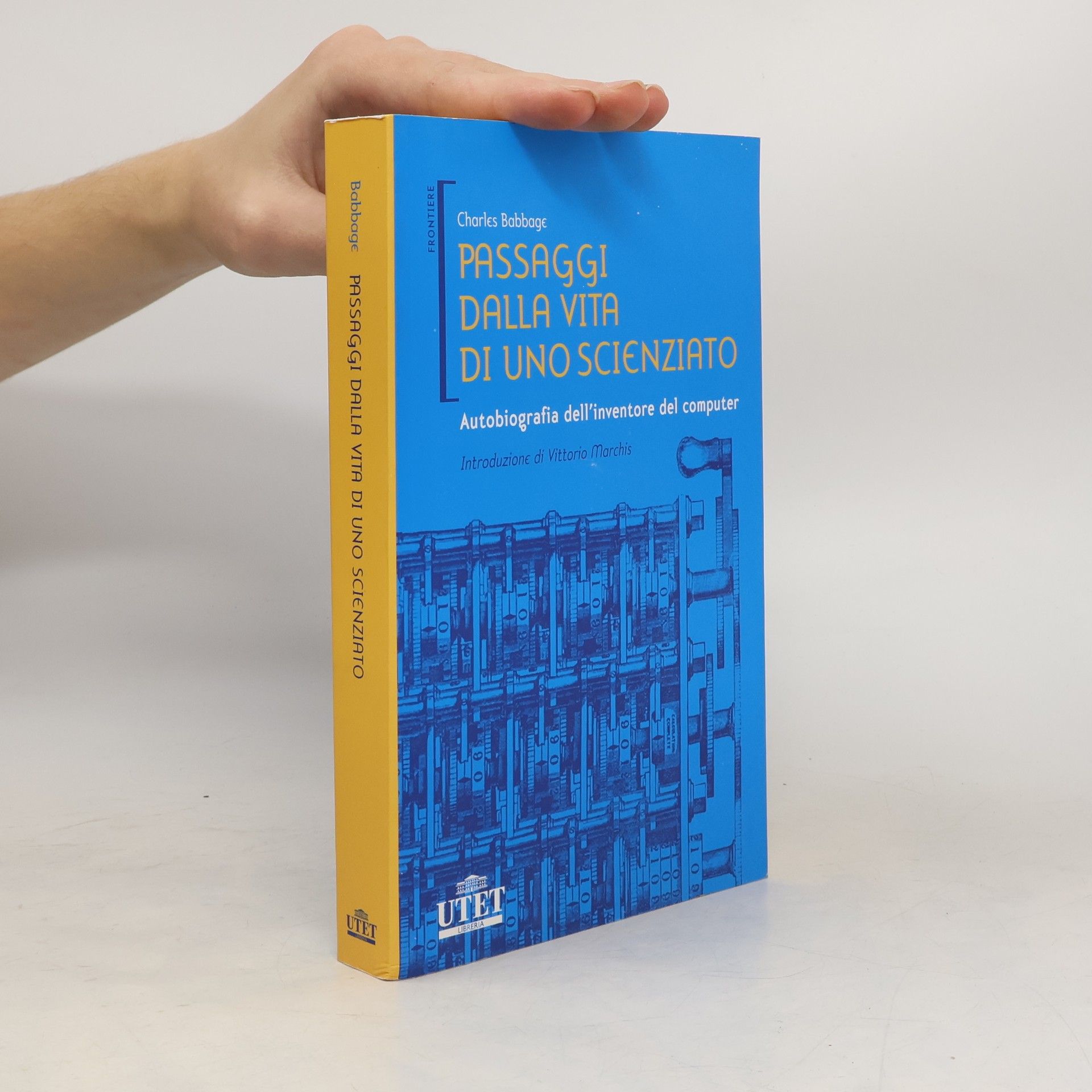Passaggi dalla vita di uno scienziato. Autobiografia dell'inventore del computer
- 414pagine
- 15 ore di lettura
Charles Babbage fu un poliedrico studioso inglese, matematico, filosofo, inventore e ingegnere meccanico. A lui si deve il concetto di computer digitale programmabile ed è considerato da alcuni il "padre del computer". Le sue invenzioni portarono a progetti elettronici più complessi, con tutte le idee essenziali dei computer moderni presenti nel suo motore analitico. Il suo variegato lavoro in diversi campi lo ha portato ad essere descritto come "preminente" tra i molti poliedrici studiosi del suo secolo. I suoi meccanismi incompleti sono esposti al Science Museum di Londra e una macchina differenziale funzionante è stata costruita secondo i suoi piani originali.




Concerns about the state of scientific research in 19th-century England are central to this work by Charles Babbage. He critiques the lack of funding, support, and educational opportunities for scientists, arguing that these deficiencies hinder national prosperity and technological progress. Babbage emphasizes the need for a robust scientific culture and infrastructure to foster innovation. He also reflects on the broader societal impacts of this decline, warning of the dangers of England losing its competitive edge in the global scientific arena.
A Victorian polymath, Charles Babbage exhibited profound intellectual curiosity across various fields, including mathematics, economics, and engineering. His pioneering work in computation led to the conception of the Difference and Analytical Engines, earning him the title of the father of the computer. Although these groundbreaking machines were not completed in his lifetime, a replica of the Difference Engine was constructed in the 1990s, and plans for an Analytical Engine are underway, highlighting his lasting impact on technology and computation.
in large print
This book is a reproduction of a historical work published by Megali, which focuses on making literature accessible through large print editions. The initiative aims to assist individuals with impaired vision, ensuring that important texts remain available and easy to read for a wider audience.